13 results in Key Concepts
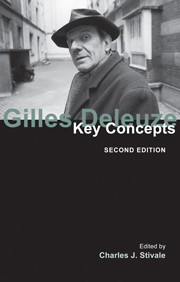
Gilles Deleuze
- Key Concepts
-
- Published by:
- Acumen Publishing
- Published online:
- 05 May 2014
- Print publication:
- 27 October 2011
-
- Book
- Export citation
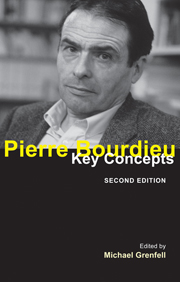
Pierre Bourdieu
- Key Concepts
-
- Published by:
- Acumen Publishing
- Published online:
- 05 April 2014
- Print publication:
- 30 September 2012
-
- Book
- Export citation

Jean-Paul Sartre
- Key Concepts
-
- Published by:
- Acumen Publishing
- Published online:
- 05 March 2014
- Print publication:
- 30 September 2013
-
- Book
- Export citation

Theodor Adorno
- Key Concepts
-
- Published by:
- Acumen Publishing
- Published online:
- 05 February 2013
- Print publication:
- 30 June 2008
-
- Book
- Export citation
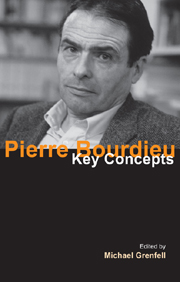
Pierre Bourdieu
- Key Concepts
-
- Published by:
- Acumen Publishing
- Published online:
- 05 February 2013
- Print publication:
- 31 July 2008
-
- Book
- Export citation

Merleau-Ponty
- Key Concepts
-
- Published by:
- Acumen Publishing
- Published online:
- 05 February 2013
- Print publication:
- 30 May 2008
-
- Book
- Export citation
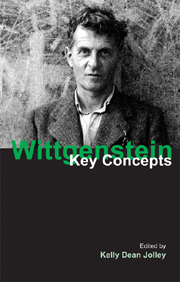
Wittgenstein
- Key Concepts
-
- Published by:
- Acumen Publishing
- Published online:
- 05 February 2013
- Print publication:
- 30 May 2010
-
- Book
- Export citation

Jacques Rancière
- Key Concepts
-
- Published by:
- Acumen Publishing
- Published online:
- 05 February 2013
- Print publication:
- 31 July 2010
-
- Book
- Export citation
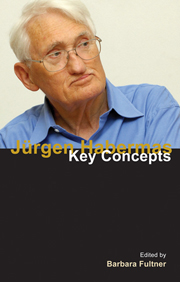
Jürgen Habermas
- Key Concepts
-
- Published by:
- Acumen Publishing
- Published online:
- 05 February 2013
- Print publication:
- 24 February 2011
-
- Book
- Export citation
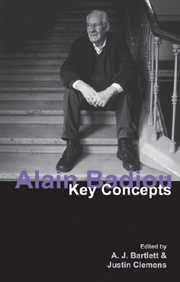
Alain Badiou
- Key Concepts
-
- Published by:
- Acumen Publishing
- Published online:
- 05 February 2013
- Print publication:
- 31 July 2010
-
- Book
- Export citation

Martin Heidegger
- Key Concepts
-
- Published by:
- Acumen Publishing
- Published online:
- 05 February 2013
- Print publication:
- 31 December 2009
-
- Book
- Export citation

Immanuel Kant
- Key Concepts - A Philosophical Introduction
-
- Published by:
- Acumen Publishing
- Published online:
- 05 February 2013
- Print publication:
- 30 November 2010
-
- Book
- Export citation
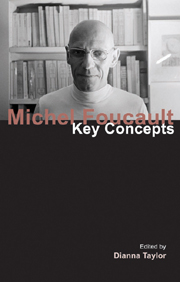
Michel Foucault
- Key Concepts
-
- Published by:
- Acumen Publishing
- Published online:
- 05 February 2013
- Print publication:
- 31 October 2010
-
- Book
- Export citation


